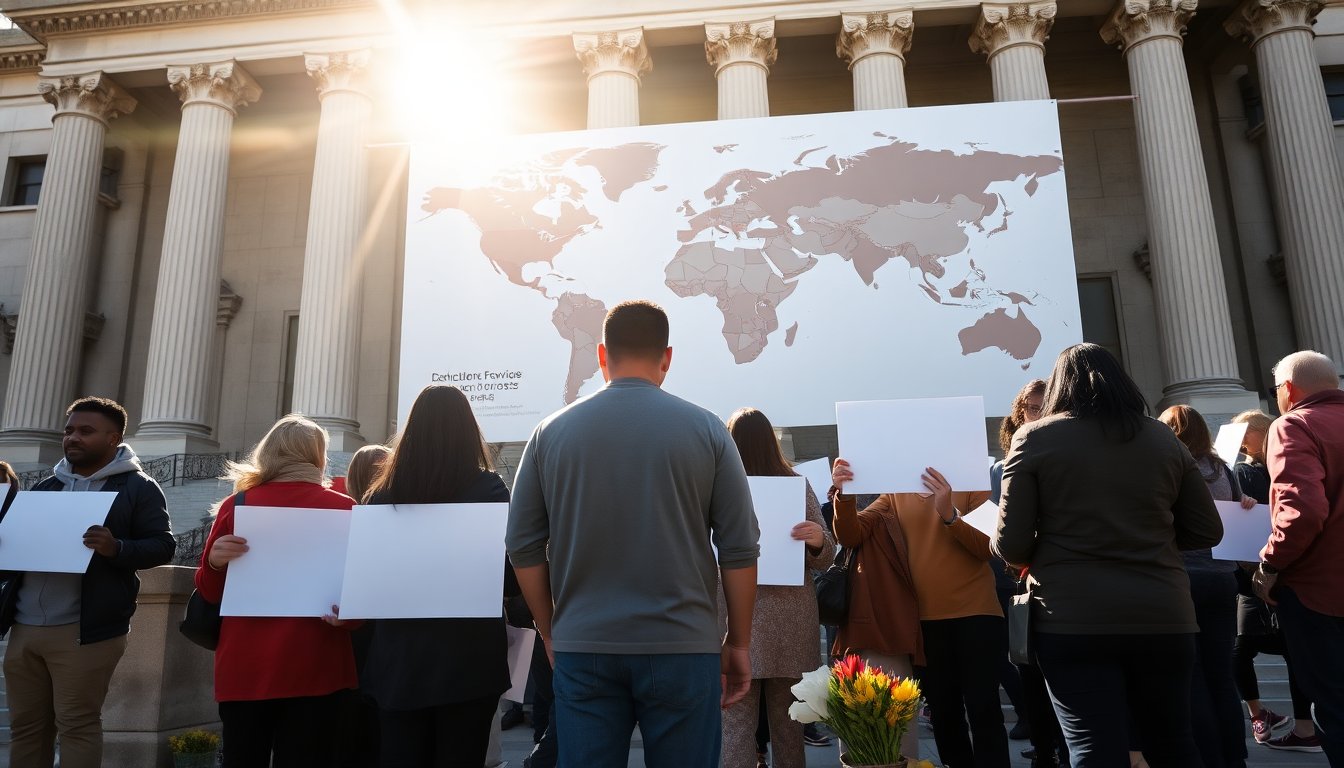Table of Contents
In a controversial move, the Trump administration has announced a significant reduction in the number of refugees permitted to enter the United States. The cap has been set at 7,500 for the fiscal year 2026, a drastic decrease from the 125,000 limit established by the previous administration. This policy shift has raised alarm among humanitarian organizations and advocates who argue that it undermines the fundamental purpose of refugee assistance.
The announcement was made in the Federal Register, which indicated that admissions will primarily focus on the white Afrikaner minority from South Africa. This decision has sparked widespread criticism, suggesting a major shift in the U.S. approach to humanitarian aid, prioritizing certain demographics over others who are fleeing dire circumstances.
Controversial prioritization of Afrikaners
Critics have noted that while there are claims of discrimination against Afrikaners in South Africa, the evidence supporting these assertions remains questionable. Trump and his supporters have suggested that Afrikaners are at risk of genocide, a claim that lacks substantial backing. Meanwhile, individuals fleeing war-torn regions or facing severe persecution in countries such as Afghanistan, Sudan, and Haiti are now considered less important under this new policy.
Humanitarian implications of the policy
Sharif Aly, the president of the International Refugee Assistance Project (IRAP), expressed strong disapproval of the new guidelines, stating that the U.S. government is politicizing a humanitarian program. He emphasized that it is profoundly unjust to exclude refugees who have undergone rigorous security screenings and who are currently facing perilous conditions. Aly’s comments highlight broader concerns that the administration is neglecting its responsibilities to global displaced populations.
Additionally, IRAP has initiated legal action against the Trump administration following an executive order that indefinitely suspended the U.S. Refugee Admissions Program until it could align with national interests. Critics argue that this approach not only diminishes the number of refugees allowed entry but also tarnishes the United States’ moral standing on the world stage.
Impacts on global refugee dynamics
The focus on a single demographic group raises questions about the future of the refugee admission process in the United States. In previous years, the top countries of origin for admitted refugees included the Democratic Republic of the Congo, Afghanistan, and Syria—nations marked by prolonged conflict and humanitarian crises. Prioritizing one group, particularly one with a complex historical background in South Africa, undermines the integrity of the refugee program.
Responses from advocacy groups
The advocacy group Human Rights First has condemned the policy as overtly racist, arguing that it ignores the plight of countless at-risk refugees fleeing various forms of persecution. Uzra Zeya, the organization’s president, criticized the decision, underscoring the historical precedent of bipartisan support for welcoming vulnerable populations, including Vietnamese refugees and Afghan allies.
Guerline Jozef, director of immigration for the Haitian Bridge Alliance, argued that the new cap represents a form of white supremacy disguised as refugee policy. She emphasized the stark contrast between the treatment of white South Africans and the ongoing struggles faced by Black refugees from countries like Haiti, where many are drowning at sea or facing deportation to dangerous situations.
Shawn VanDiver, president of #AfghanEvac, expressed dismay over the decision, labeling it a “horrendous betrayal” of Afghan allies who risked their lives supporting U.S. efforts in their homeland. He articulated the sentiment that this policy effectively shuts the door on Afghan refugees seeking safety in the U.S.


